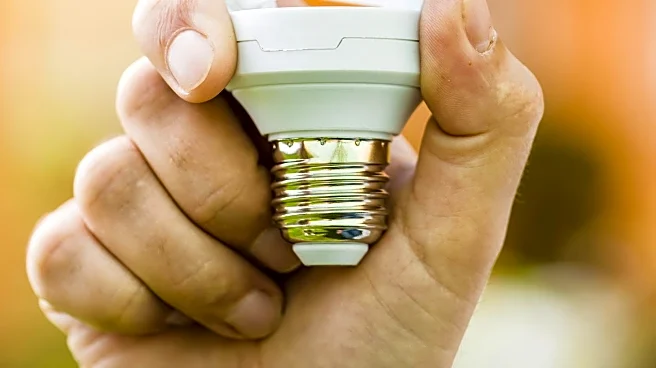What's Happening?
A recent survey highlights that nearly 80% of adults are concerned about rising energy costs, prompting a focus on reducing 'phantom load'—the energy consumed by appliances even when turned off. The Department
of Energy reports that standby power accounts for 5% to 10% of residential energy use. Unplugging devices not in use, using smart plugs, and investing in energy-efficient appliances like LED bulbs and smart thermostats are recommended strategies to cut down on unnecessary energy consumption. These measures can save households up to $165 annually and contribute to significant environmental benefits by reducing carbon emissions.
Why It's Important?
The increasing cost of energy is a significant concern for many U.S. households, impacting their financial stability. By adopting energy-saving practices, consumers can alleviate some of this financial pressure. The broader adoption of energy-efficient technologies not only reduces individual utility bills but also contributes to national efforts in reducing carbon emissions and combating climate change. This shift towards energy efficiency can drive demand for innovative products and services, potentially boosting sectors focused on sustainable technology and energy solutions.
What's Next?
As awareness grows, more households are expected to adopt energy-saving measures, potentially leading to increased demand for smart home technologies and energy-efficient appliances. Utility companies may respond by offering incentives for energy conservation, while policymakers could push for stricter regulations on appliance energy consumption. The trend may also encourage further research and development in energy-saving technologies, fostering innovation in the sector.
Beyond the Headlines
The move towards energy efficiency raises ethical considerations regarding consumer behavior and corporate responsibility. Companies producing energy-intensive appliances may face pressure to innovate and reduce their products' environmental impact. Additionally, the shift could influence cultural attitudes towards consumption and sustainability, promoting a more environmentally conscious society.








